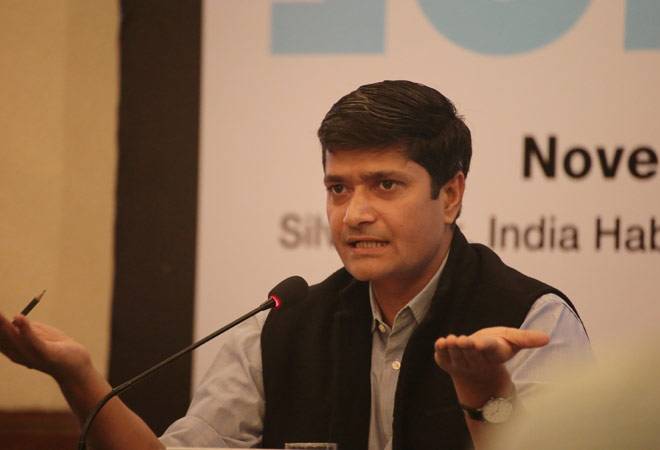“Keeping our cities clean by only collecting and disposing wastes is not sufficient. What is required is source-segregation, proper treatment, recycle and reuse of the waste. Zero landfill should be the goal of municipal waste management in India,” said Chandra Bhushan, deputy director general, Centre for Science and Environment (CSE), at the inaugural session of the Regional Meeting for Eastern and North Eastern States under CSE’s “Forum of Cities that Segregate” initiative attended by all the urban local bodies of Bihar and major cities from eastern and north-eastern India.

CSE has been working with cities to promote and implement source-segregation and decentralised model of waste management.
“To advance this work and to create a movement in the country on source-segregation, CSE had launched the ‘Forum of Cities that Segregate’ on December 12, 2017. The Forum now has over 80-member cities from across the country including Indore, Thiruvananthapuram, Mysuru, Muzaffarpur and some municipal corporations of Delhi NCR and all the cities of Bihar,” said Swati Singh Sambyal, Programme Manager, CSE.
“Indian cities continue to struggle with waste- of the total 52 million tonnes that is generated yearly, only 21 per cent is processed and over 50 per cent is disposed in dumpsites, drains – contaminating our rivers and oceans. Also, with growing consumerism and changing lifestyles, plastics has become a huge problem especially single use plastics,” added Bhushan.
The management of municipal solid waste in eastern and north-eastern India continues to be a severe problem because of the poor management systems. From collection of wastes to disposal, these cities are struggling to manage their waste. Majority of the cities in this region have been ranked low in the Swachh Survekshan assessments in the past few years.
“It is important for cities in states like Bihar to adopt successful waste management models like the one being implemented in Muzaffarpur. The Muzaffarpur model not only manages the waste sustainably, but it also makes money out of waste,” added Bhushan.
CSE’s latest report on the need for a new policy on City compost, titled “Çharting the Future of City Compost”, was also released in the inaugural session by the Urban Development Minister of Bihar Shri Suresh Kumar Sharma. Speaking at the function, Shri Sharma emphasised the need of replication of Muzaffarpur model in cities as well as urged cities to practice composting and decentralised waste management.
“If we can return back the food waste as organic fertiliser to our farmers, it will lead to less chemical in the environment which will reduce pollution and improve our health,” said Shri Suresh Sharma at the meeting.
For the past year Muzaffarpur is said to have seen a lot of progress. The city has become a model city in eastern and north-eastern India by adopting the source segregation model of waste management.
“Over a period of two years, Muzaffarpur has become one of the cleanest cities in Bihar with all 49 wards segregating waste at source and with segregation percentage of over 80 per cent. The city has currently three processing centres which also includes Bihar’s first learning centre on composting,” said Sanjay Dubey, Municipal Commissioner of Muzaffarpur.
“However, a lot needs to be done, we have completed 50 per cent of the work in Muzaffarpur, now we need to address issues such as plastics and ensure this model becomes sustainable and self-sufficient,” added Sambyal.
At the meeting, cities like Muzaffarpur, Panchgani, Ambikapur, Gangtok, Gaya, Kakching and Munger made presentation on the models they have adopted for the waste management. The need for the solid waste management (SWM) byelaws, proper dry waste management systems and plastic management was discussed at the meeting.
The new forum cities were distributed the membership certificate to join the movement on source segregation and cleanliness in the country. A roadmap for replication of decentralised waste management models by cities of Eastern and North Eastern states was discussed and the cities pledged to practice sustainable waste management.
“We hope that the cities in the Forum would become pioneers in terms of SWM and guide other cities on technical, economic and social aspects of managing their waste,” Bhushan added.
